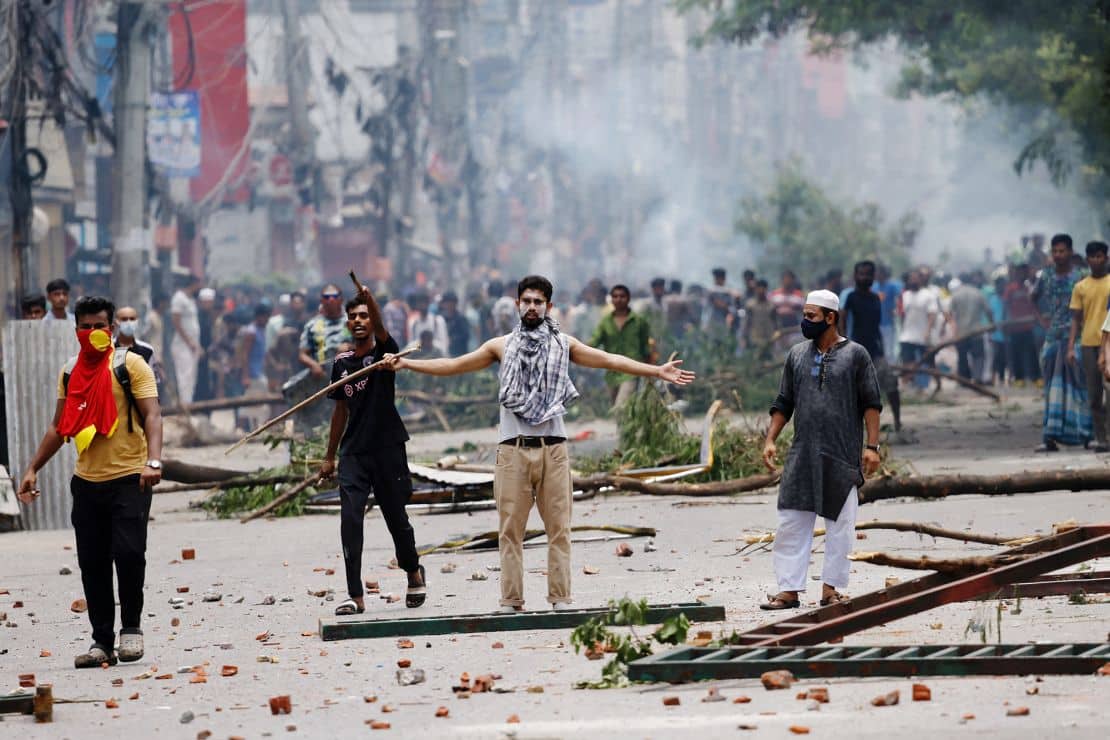Leaked Documents Reveal Sheikh Hasina’s Approval of Lethal Crackdown in Bangladesh

A leaked audio recording has revealed that former Prime Minister Sheikh Hasina of Bangladesh authorized the use of lethal force against student-led protesters during a violent crackdown last summer. The recording, verified by BBC Eye, captures Hasina instructing security forces to “shoot” protesters, leading to a death toll of up to 1,400, according to UN investigators. As she faces trial in absentia for crimes against humanity, prosecutors plan to use this audio as key evidence against her, while Hasina and her party continue to deny any wrongdoing.
Details of the Leaked Audio
The audio recording, which surfaced online in March, features a conversation between Hasina and a senior government official. In it, she explicitly authorizes her security forces to use lethal weapons against demonstrators. This recording is considered the most significant evidence linking Hasina directly to the violent suppression of protests that erupted last summer. The protests initially began over civil service job quotas but escalated into a broader anti-government movement, resulting in unprecedented violence in Bangladesh. On August 5, 2023, the situation reached a boiling point, leading to Hasina fleeing her residence in Dhaka as crowds surged toward her home.
The BBC’s investigation has uncovered previously unreported details regarding the police’s violent response to the protests. Eyewitness accounts and video evidence suggest that police opened fire indiscriminately on protesters, resulting in a much higher death toll than initially reported. The investigation has also highlighted the role of military-grade weapons used during the unrest, which were deployed following Hasina’s controversial phone call.
Legal Implications for Sheikh Hasina
Sheikh Hasina is currently facing trial in absentia at a special tribunal for crimes against humanity, including charges of incitement and conspiracy related to the mass killings of protesters. The leaked audio is expected to play a crucial role in the prosecution’s case. Despite the serious allegations, Hasina has fled to India, and her party, the Awami League, has denied any unlawful intent behind her orders. A spokesperson for the party stated that the decisions made during the unrest were proportionate and aimed at minimizing loss of life.
The trial began last month, and the International Criminal Tribunal has indicted 203 individuals, including former government and police officials. Of these, 73 are currently in custody. The Awami League maintains that its leaders are not liable for the actions taken against protesters, asserting that the use of force was justified under the circumstances.
Violence and Public Outrage
The protests that led to the violent crackdown were sparked by public outrage over police killings of demonstrators, which were widely shared on social media. The BBC’s investigation has documented extensive police violence over a 36-day period, revealing that the police’s actions on August 5 in Jatrabari resulted in at least 52 deaths, making it one of the deadliest incidents in Bangladesh’s history. Initial reports had suggested that only 30 people were killed that day.
Eyewitness footage and other evidence collected by BBC Eye indicate that police began firing on protesters after army personnel, who had been separating the two groups, left the area. The police continued to shoot at fleeing protesters for over 30 minutes, leading to chaos and further violence, including the burning of a police station by angry demonstrators.
Current Political Landscape in Bangladesh
Since Sheikh Hasina’s departure, Bangladesh has been governed by an interim administration led by Nobel laureate Muhammad Yunus. This government is currently preparing for national elections, although it remains uncertain whether the Awami League will be permitted to participate. The political climate in Bangladesh continues to be tense, with ongoing discussions about the accountability of government officials for their actions during the protests.
As the trial progresses, the implications of the leaked audio and the findings of the BBC investigation may significantly impact the future of Bangladesh’s political landscape and the accountability of its leaders. The Awami League has rejected the findings of UN investigators, who have suggested that the actions of Hasina and her government could amount to crimes against humanity, further complicating the already volatile situation in the country.
Observer Voice is the one stop site for National, International news, Sports, Editor’s Choice, Art/culture contents, Quotes and much more. We also cover historical contents. Historical contents includes World History, Indian History, and what happened today. The website also covers Entertainment across the India and World.
Follow Us on Twitter, Instagram, Facebook, & LinkedIn

